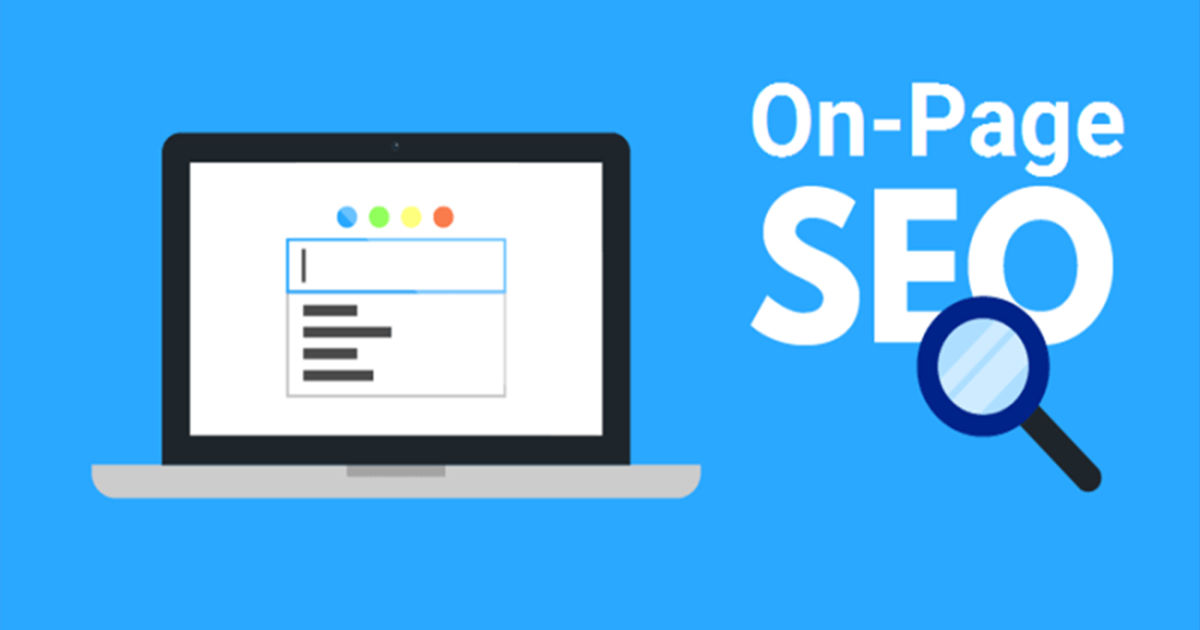In the vast landscape of digital marketing, one term reigns supreme: Search Engine Optimization (SEO). Among its various facets, On-Page SEO stands as the cornerstone for enhancing website visibility and ranking on search engine results pages (SERPs). This comprehensive guide will delve into the depths of On-Page SEO, deciphering its significance, dissecting its components, and unveiling the best practices to elevate your website’s online presence.
Understanding On-Page Search Engine Optimization:
On-Page SEO refers to the optimization efforts implemented directly on a website to enhance its visibility and relevance for specific search queries. Unlike Off-Page SEO, which involves external factors like backlinks and social signals, On-Page SEO focuses on optimizing elements within the website itself to improve its ranking on search engine results.
Importance of On-Page SEO:
The significance of On-Page SEO cannot be overstated in today’s digital ecosystem. It serves as the foundation upon which successful SEO strategies are built. By optimizing various on-page elements, websites can effectively communicate their relevance to search engines, thereby increasing the likelihood of ranking higher in SERPs. Additionally, On-Page SEO contributes to a seamless user experience, fostering engagement and driving organic traffic.
Components of On-Page SEO:
- Meta Tags: Meta tags, including title tags and meta descriptions, provide concise summaries of webpage content and play a crucial role in determining click-through rates (CTR) from search results.
- URL Structure: A clean and descriptive URL structure not only aids search engines in understanding the context of a webpage but also enhances user experience and navigation.
- Keyword Optimization: Strategic placement of keywords throughout webpage content helps search engines identify the relevance of the page to specific search queries.
- Content Quality: High-quality, informative, and engaging content not only attracts and retains visitors but also earns credibility and authority in the eyes of search engines.
- Internal Linking: By linking related pages within a website, internal linking enhances crawlability, distributes link equity, and improves user navigation.
- Image Optimization: Optimizing images with descriptive filenames, alt attributes, and captions improves accessibility, enhances user experience, and contributes to keyword relevance.
- User Experience (UX): Factors such as page speed, mobile responsiveness, intuitive navigation, and clear calls-to-action (CTAs) are vital for delivering a seamless and satisfying user experience.
Best Practices for On-Page SEO:
- Conducting Keyword Research: Identify relevant keywords with sufficient search volume and optimize content around these keywords to attract targeted traffic.
- Optimizing Meta Tags: Craft compelling title tags and meta descriptions that accurately reflect the content of the page and entice users to click through.
- Crafting Engaging Content: Create high-quality, valuable, and engaging content that addresses the needs and interests of your target audience while incorporating relevant keywords naturally.
- Improving Page Speed: Optimize website performance by minimizing code, leveraging browser caching, optimizing images, and utilizing content delivery networks (CDNs) to enhance page speed and user experience.
- Mobile Responsiveness: Ensure that your website is fully responsive and optimized for mobile devices, as mobile-friendliness is a crucial ranking factor for search engines.
- Structured Data Markup: Implement structured data markup (Schema.org) to provide search engines with additional context about your content, enhancing visibility in rich snippets and featured snippets.
On-Page SEO Tools and Resources:
- Google Search Console
- Google Analytics
- Moz Pro
- SEMrush
- Yoast SEO (WordPress plugin)
Common Mistakes to Avoid:
- Keyword Stuffing: Overloading content with excessive keywords can lead to a poor user experience and may result in penalties from search engines.
- Ignoring Mobile Optimization: With the majority of internet users accessing content via mobile devices, neglecting mobile optimization can significantly hinder website performance and rankings.
- Neglecting User Experience: Prioritizing search engine bots over human visitors can backfire, as user experience is a crucial ranking factor and directly impacts bounce rates and engagement metrics.
- Neglecting Technical SEO: Ignoring technical aspects such as crawlability, site structure, and indexing directives can impede search engine visibility and hinder organic traffic growth.
Conclusion:
In the ever-evolving realm of digital marketing, mastering On-Page SEO is indispensable for achieving sustainable online success. By optimizing key on-page elements, crafting compelling content, and prioritizing user experience, websites can effectively enhance their visibility, attract targeted traffic, and achieve higher rankings on search engine results pages. Embrace the best practices outlined in this guide, leverage the recommended tools and resources, and steer clear of common pitfalls to propel your website to new heights of search engine prominence.
